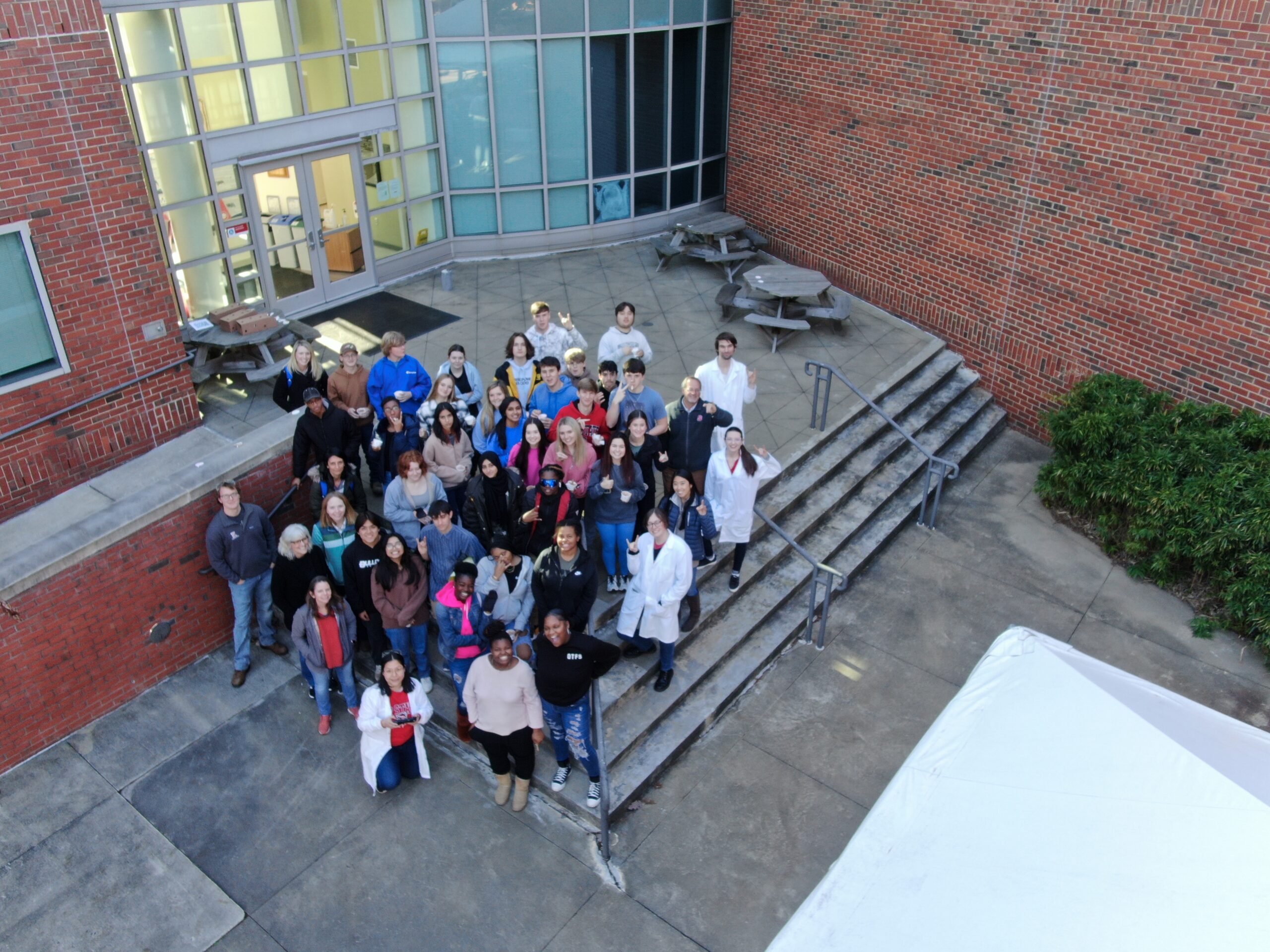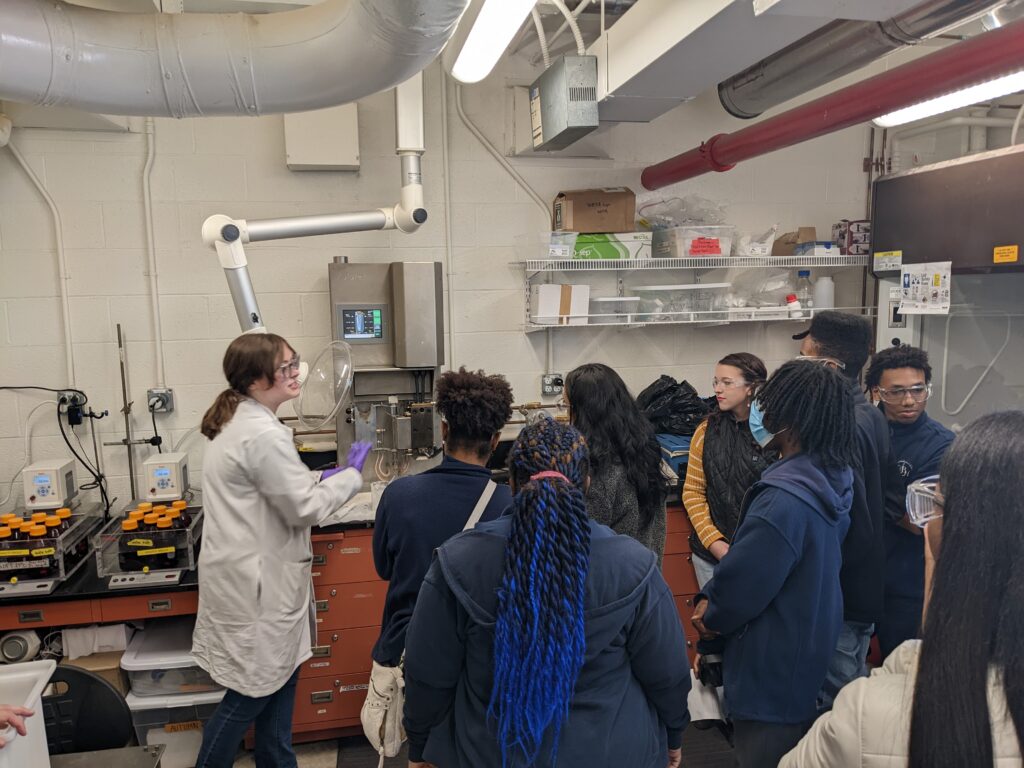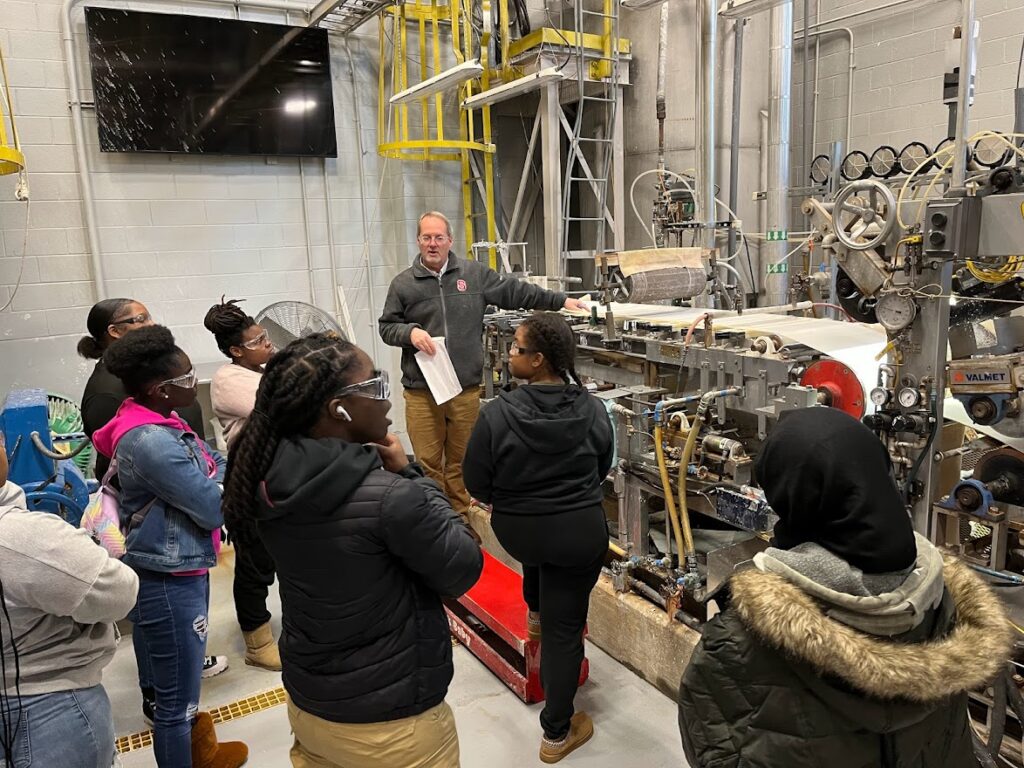Interdisciplinary grant collaboration provides high school students with exposure to bioeconomy research and STEM pathways

An interdisciplinary team of scientists, engineers, and educators hosted a field trip for 85 high school students from Eastern North Carolina including Vance Charter School (Henderson NC), Washington High School (Washington NC), and Sallie B Howard School (Wilson NC) on Friday, November 18, 2022. The field trip aimed to give students exposure to a variety of STEM majors and careers and current research on biomaterials and biomanufacturing. The event was funded by a National Science Foundation Eco-Manufacturing of Recyclable Soft Electronics project and the USDA Sustainable Bioproducts and Bioenergy grant program.
A total of 24 NC State faculty, graduate students, and a postdoc helped facilitate the field trip. The NC State team led the students through laboratory rotations in four departments: Mechanical and Aerospace Engineering, Forest Biomaterials, Chemical and Biomolecular Engineering, and Industrial and Systems Engineering. Faculty and graduate students in each department provided guided tours throughout their research labs and pilot plant facilities and conducted demonstrations with various equipment. The high school students participated in several other activities during their day at NC State, including a college information session, student panel with current undergraduates, Hunt Library tour, and lunch on campus.

The field trip was well received by the high school students and teachers. One teacher said, “We had a great, great time! We appreciate it. I am sure the students learned about many college careers and job opportunities today.” It was a beneficial experience for students, as it was many students’ first time visiting a college campus and seeing research labs. One student shared, “I had a fun experience at the field trip, because it gave me an opportunity to ask questions that I had and they also gave me more information that can help me determine what decisions I make about college.” Another student had an important realization: “I understand what [researchers] do and why they are important to the development of science.”
“I was impressed with the curiosity of the students. Many of them knew little about how paper was made and how sustainable and recyclable it can be but were genuinely amazed by the outstanding paper properties (stronger than steel) we discussed. The students had excellent questions about career opportunities in the paper industry sector,” stated Professor Richard Venditti, PI of the USDA SBBP grant.
